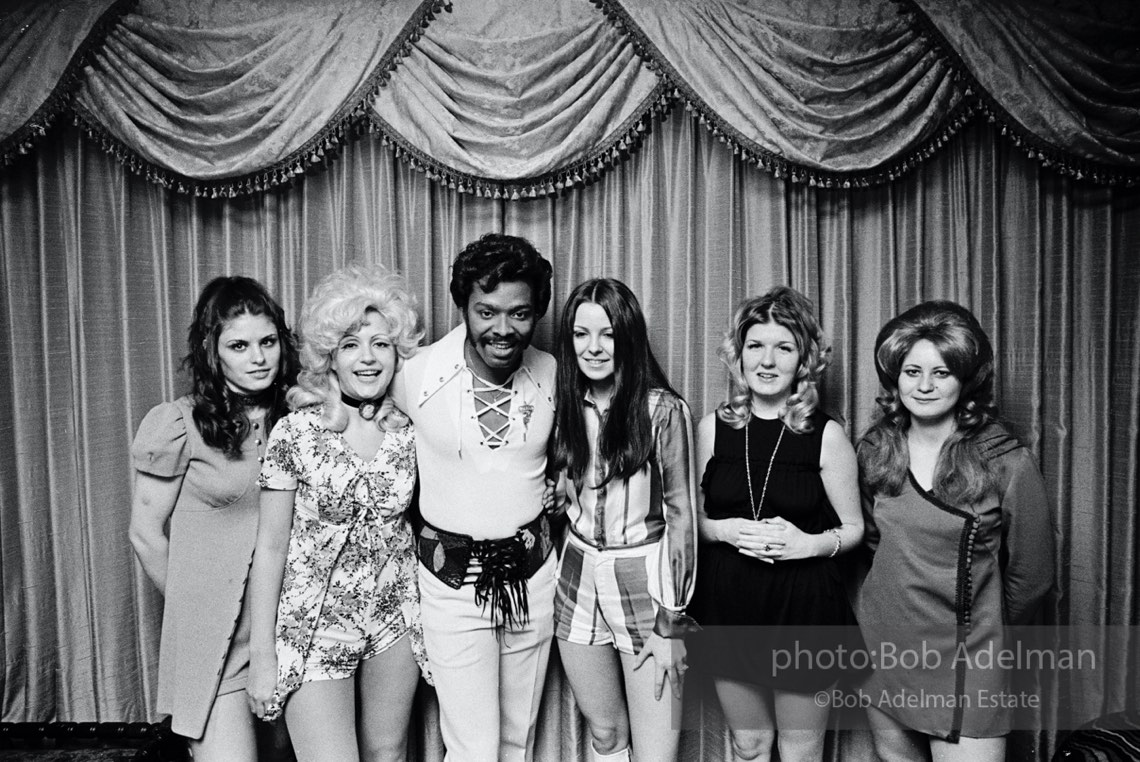“Silky,” a pimp, with his “stars,” New York City. 1970
“Why would a pimp who leeches off women end up as a popular culture hero? The illusion persists that there is
some effortless way to make it to Easy Street. And in a world of one-parent families, a man who is getting it
over on women may appear enviable. Outlaws can look like heroes to the young and rebellious. Maybe that’s why a good deal of the pimp’s lingo and myth and style permeates hip-hop. This isn’t brand new: Americans have been for generations listening to music, dancing, dressing and talking with expressions that started on the
street. Jazz was first played in bordellos, jitterbugging and zoot suits came up from the underground. Chump
change, a Wall Street expression, originally referred to the kind of money an unsuccessful pimp made.”
